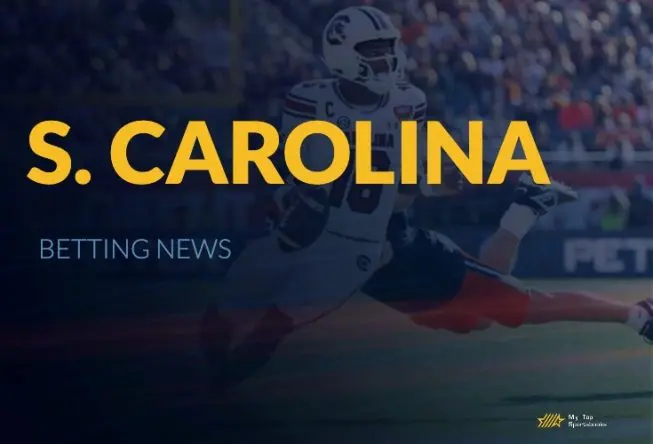
North Carolina’s fiscal year — which runs from July 1 to June 30 — showed us just how big legal sports betting has been statewide. It also showed us how much South Carolina sports betting is missing out by not legalizing it.
You’re going to want to keep reading cause the numbers coming out of the North are truly jaw-dropping. We all expected legal sports betting to be a hit, but perhaps not to this level. Let’s dig into the data!
North Carolina By The Numbers

North Carolina sports betting was approved in June 2023. However, it didn’t launch until 2024. Welp, we now have full data on how those 16 months have gone, and it’s gangbusters stuff.
North Carolinians wagered a staggering $6.6 billion during that timeframe. That’s just total bets placed. Of course, the state itself only keeps a part of that after the top betting apps keep their share. Still, the state earned $116.5 million in tax revenue.
But let’s put those numbers in context because this is where things get really interesting. Back in 2023, the legislature’s Fiscal Research Division had predicted $3.9 billion in total wagers for the first year. So those expectations were $3 million underneath what actually happened.
You HAVE to believe that South Carolina is looking across state lines and thinking, “what are we missing out on?” The states are eerily similar, after all (though the North has double the residents). And once you realize what North Carolina is funding with their share of sports betting, that’s when FOMO has to kick in for their Southern neighbors. Allow us to explain.
Who Gets Spots Betting Tax Money Anyway?
Going more into the data, it’s important to note that gross wagering revenue for the fiscal year came in at $647.7 million. Because the state taxes betting at 18 percent, that’s how they ended up with the $116.5 million in revenue we mentioned.
Now that money doesn’t all sit in a general pool. No, no, North Carolina law outlines exactly how it’s distributed. Each year, $2 million goes to gambling addiction education and treatment programs. Another $1 million is funneled into youth sports. Then 13 UNC system universities each receive $300,000 earmarked for athletic department spending — think facilities, scholarships, and operations.
The state also sets aside $1 million annually for amateur sports organizations and events. After that, the remaining tax revenue is split across three areas: 20 percent to the 13 UNC athletic departments, 30 percent to an incentive fund for attracting major events and entertainment, and the remaining 50 percent to the state’s general fund.
South Carolina, if they were ever to legalize, could follow suit. Or they can choose to fund their entire education department, which is what many other states do. Lawmakers would have the power to decide, and surely, they can come up with a good use for sports betting dollars.
Taxes Could Always Go Up (And So Too Revenue)
Lawmakers in North Carolina recently floated the idea of doubling the state’s sports betting tax rate — from 18 percent to 36 percent — as part of the Senate’s 2025–2027 budget proposal. The measure didn’t pass, but the message was clear: there’s a lot more money on the table, and the state knows it.
If passed, the new rate would’ve made North Carolina one of the most aggressive taxers in the nation, right alongside Pennsylvania (36%) and just below heavyweights like New York and New Hampshire (both 51%). Nationwide, we’re seeing states either pass or discuss new sports betting taxes. Illinois barely approved a 25-cent tax per wager, while Maryland successfully raised its rate from 15 to 20 percent.
The North Carolina proposal also included more funding for UNC system schools, upping the minimum from $300,000 to $500,000 per school, with UNC (the school where Bill Belichick now coaches) and NC State joining the pool.
Even though the hike didn’t stick — at least not this time — it underscores how attractive sports betting is for state budgets. For a state like South Carolina, still on the sidelines, it’s another reminder of what they’re leaving behind. Other states are raising taxes and reinvesting the cash. South Carolina isn’t even in the game.
Will South Carolina Ever Get In The Game?
Given what we’ve said, here’s the hundred-million-dollar question: what’s the holdup in South Carolina?
Put simply, leadership isn’t budging. Governor Henry McMaster is still firmly against any expansion of gambling and has vowed to veto any bill that crosses his desk. Lawmakers have introduced multiple proposals in recent years — but none of them have gotten serious traction. The latest one, the bipartisan Sports Wagering Act, went nowhere before the 2025 legislative session ended and effectively killed it. Momentum to legalize is hard to find anywhere stateside.
All of this while North Carolina keeps printing money off it. Their sports betting rollout is already a massive success — and they’re barely in year two. Meanwhile, South Carolina is sitting idle. Not because the people don’t want it, but because the ones in power haven’t caught up. And that hesitation? It’s getting more expensive by the month.
 Best Betting Sites
Best Betting Sites 